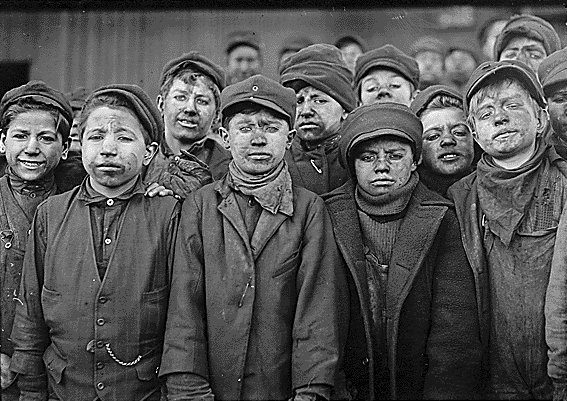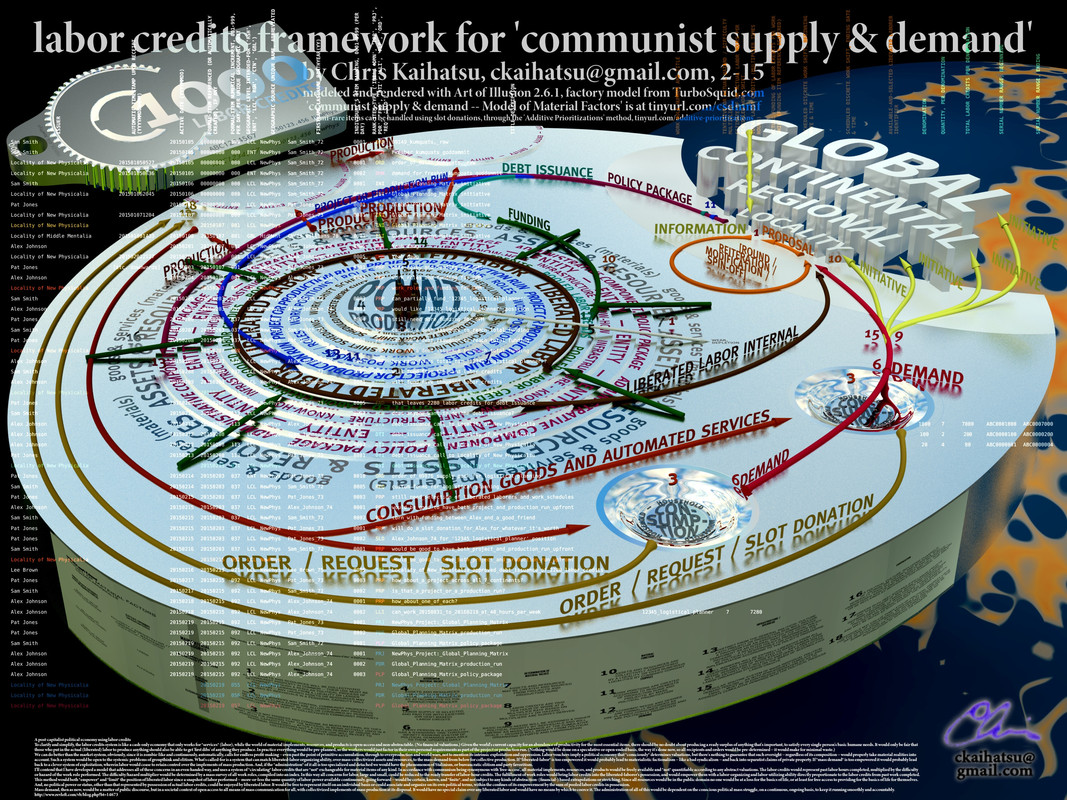Tainari88 wrote:I liked listening to this debate between my favorite Marxist economist Richard Wolff and a prominent Capitalist expert:
Which of these two you agree or disagree with and why?
'Capitalism' is not 'Democratic', it never will be 'Socialistic' either, at the fundamental level, neither of them are true to their patronage.
A 'democrat' exercise's choice by how they vote in the expectation of a particular outcome that 'supposedly' , brings the, ' greatest possible happiness to the greatest number of people'


.
A 'Socialist' wants to produce the above objectives by
arbitrarily deciding how, where, when & whom should have the fruits of someone else's labour through the redistribution of taxes levied on anything that moves.
A 'Capitalist' wants to apportion the greatest happiness on himself by charging an excess of what any goods or services cost to produce or sell in order to maximise his profit.
His 'taxpayer' is the customer from whom he levies the 'tax' that will earn him his profit, the customer though, has what neither 'Socialism', or 'Democracy' can provide- choice in where or how & to whom they give their disposable wealth to in return for material or other happiness.
The latter case illustrates that the consumer or customer always has the freedom to choose, providing that they have the means to make such choices, that's the fool-proof logical reason to never vote, because, by so doing, you get an expanding state.
A 'Socialist' government that has only one objective , to extract the maximum taxes from each, whilst 'redistributing' the minimum to the least well-off('Socialism'),in order to maintain the status quo of the ruling 'elite' capitalist class.
A 'Conservative' type of government, which includes the 'Liberal' flavour, exist only to maintain the capitalist system, for which the resources that it spends are distributed to it's property wealthy 'friends' of the 'elite' type, whether at a personal level, as 'reliefs', lower taxes,or 'tax breaks'.
They then double down on their own version of 'Socialism' towards Capitalism, through every conceivable reduction in business taxes, expanding tax reliefs, inflated public contract prices, bail-outs, 'write-downs' or tax 'gap' that they can get away with, whilst minimising the level of subsistence 'affluence' of the less well-off by using 'austerity' as an instrument in which to wage economic war against the less well-off whom they created in the first place.
One can be an 'apologist' to either side, they are simply two sides of the same coin, both sides have a vested interest in creating a schism between people through the creation of rich & poor.
The Tory side want cheap labour for their 'friends', whilst the 'Socialist' want the votes of the poor or less well-off, it's the people that always pay, if you are 'well-off', paying is no object, not so if poor or less 'well-off', for these two groups are never fully compensated for inflation in the capitalist system(caused by government).
At root, all that government does, is 'skim off money from people, either directly or indirectly(as in spending taxes), or business, to spend how it sees fit, it's the people that always pay, not business, because taxes are always passed on to the customer by business & the end user is always a personal customer or consumer.
We do not have a true Laissez Faire economic system, if we had, the state would not bail out businesses or even support them, instead business continue trading each year because the state allows badly run businesses to 'write down' their losses against any taxable gains each tax year, whereas a poor person would just be unable to seek redress for their own financial incontinence.
The western capitalist system is surviving solely on increasing dent which is 'creating' money, the effect is higher inflation, which is being dishonestly reported by governments, in order to reduce compensation payments to it's creditors or those long term liabilities to pensioners or benefit claimants, as a result currency values are being deflated towards the status of ;'fiat' status, as the price of gold would attest.

















 .
.
 - By JohnRawls
- By JohnRawls